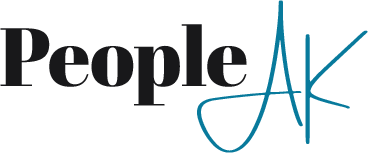When reviewing job applications, many hiring managers instinctively turn to resumes as their primary screening tool. A resume offers a quick glance at a candidate’s experience, education, and skills, making it a useful starting point. However, relying solely on resumes to filter out applicants can be a costly mistake. Gallup’s research, as well as broader hiring best practices, suggest that resumes provide an incomplete picture of a candidate’s potential. Companies that place too much emphasis on resumes risk overlooking talented individuals who could thrive in their organizations. Here’s why a more holistic hiring approach is essential.
Resumes Provide a Snapshot, Not the Full Story
A well-crafted resume highlights a candidate’s past experience, but it does not capture their full potential. Many resumes focus on job titles, technical skills, and educational backgrounds—elements that are important but not necessarily indicative of future success. A candidate’s ability to grow, adapt, and contribute meaningfully to a team often extends beyond what is written on paper.
For example, two applicants may have identical job titles and years of experience, but one might have demonstrated exceptional leadership, problem-solving abilities, and adaptability in ways that a resume alone won’t reveal. Without a conversation or deeper assessment, hiring managers might miss out on these hidden strengths.
Gallup’s Research: Talent Over Experience
Gallup advises against using resumes as the sole screening tool because experience and credentials do not always predict success. According to Gallup, natural talent—such as problem-solving, leadership, and interpersonal skills—is a more reliable indicator of performance. Employers who focus too much on past job titles or years of experience may unintentionally exclude high-potential candidates who possess the strengths needed to excel.
This perspective is especially relevant in today’s rapidly changing job market. The skills required for many roles evolve quickly, and the ability to learn and adapt is often more valuable than having past experience in a similar position. Someone with the right mindset and work ethic can often be trained in technical skills, whereas intrinsic strengths like strategic thinking and emotional intelligence are more difficult to teach.
Resumes Can Be Limiting and Biased
Another issue with over-relying on resumes is that they can reinforce unconscious bias. Traditional hiring methods often favor candidates from specific educational backgrounds, well-known companies, or conventional career paths, while overlooking equally capable individuals from nontraditional backgrounds.
For example, a candidate who took an unconventional career route—such as transitioning from a different industry or gaining experience through volunteer work—may have developed skills that are just as valuable as those who followed a more traditional path. If hiring managers dismiss these resumes too quickly, they might miss out on highly capable individuals who bring fresh perspectives and innovative problem-solving skills to their teams.
Beyond the Resume: A Holistic Hiring Approach
If resumes alone aren’t enough, what should hiring managers focus on instead? A well-rounded hiring process includes:
-
- Structured Interviews – Conversations help assess a candidate’s communication skills, thought processes, and ability to problem-solve in real time. Behavioral and situational interview questions provide insight into how a candidate approaches challenges and interacts with others.
- Strengths-Based Assessments – Gallup’s research supports using strengths-based assessments to identify a candidate’s natural talents. These assessments help measure a person’s ability to succeed in a role beyond what their resume suggests.
- Practical Evaluations – Work samples, case studies, or skills tests provide a better understanding of a candidate’s abilities. Instead of assuming proficiency based on a resume, hiring managers can see how an applicant performs in real or simulated tasks.
- Cultural Fit and Motivation – Interviews and reference checks help determine whether a candidate aligns with the company’s values and long-term goals. Understanding why someone wants the job and how they envision contributing to the organization is critical to long-term success.
The Resume’s Role in Hiring
This doesn’t mean resumes should be ignored entirely. They are still a valuable tool for gauging experience and identifying potential matches. However, they should be viewed as just one piece of the puzzle rather than the determining factor in candidate selection.
When used correctly, resumes help narrow the applicant pool, but they should not be used to immediately disqualify candidates without further evaluation. The goal should be to identify individuals who have the potential to thrive rather than simply those who check all the right boxes on paper.
Look Beyond the Resume
Resumes are a starting point, but they should never be the sole reason for screening out applicants. By incorporating interviews, strengths-based assessments, and real-world evaluations, employers can make better hiring decisions and uncover candidates with the true potential to excel.
Gallup’s research reinforces the idea that talent and strengths are more predictive of success than a list of past job titles. Companies that move beyond traditional resume screening and focus on holistic hiring practices will be better equipped to build strong, dynamic teams that drive long-term success.
Written by Patty Billingsley, SHRM-SCP, SPHR, CCP
PeopleAK Executive Consultant
Patty brings a wealth of experience and top-notch certifications in HR, specializing in developing and implementing competitive compensation programs. With her deep understanding of strategic HR management, Patty is adept at navigating organizational transitions and managing critical projects with ease. She ensures that your business attracts and retains top talent through well-structured compensation plans, fostering loyalty and reducing turnover.
Would you like expert guidance in landing your next dream job? Learn more about our Career Branding service!

